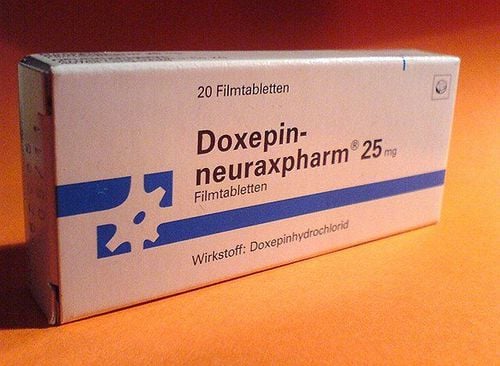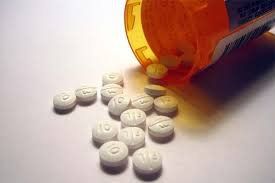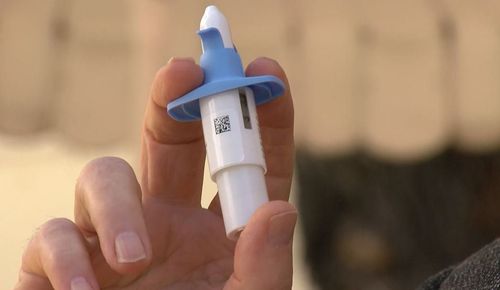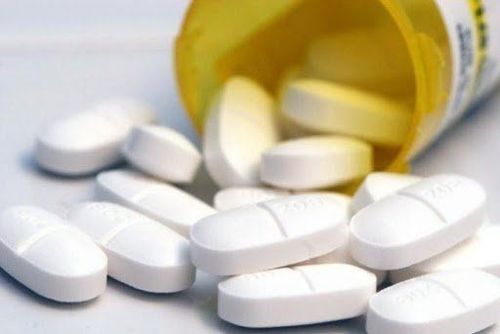This is an automatically translated article.
How long to take antidepressants, whether antidepressants are addictive is one of the big questions of the family and the person suffering from depression. Prescriptions for depression often include many different medications, which means there are many possible side effects. So when should the drug be stopped or does the patient need to take antidepressants for life?1. What is depression?
Depression is a brain-related abnormality that manifests as disturbances in emotions, concentration, sleep, daily activities, appetite, and social responsiveness. A number of factors are thought to trigger or re-initiate the disease related to psychological trauma such as: unexpected accidents, loss of loved ones, broken relationships, career collapse .. Depressive manifestations depend on increasing levels such as:
Mood disturbances such as sadness, feeling of heaviness, irritability, irritability; Sleep disorders ; Decreased appetite; Impaired ability to concentrate; Memory decline ; Decreased desire, enjoyment of life; Psychological inferiority, guilt, sadness, emptiness... If depression medication is not prescribed for timely treatment, the disease may progress gradually and the patient may be depressed, desperate, unwilling to continuing to live, having suicidal ideation or behavior. Therefore, patients need to be diagnosed and treated as soon as possible by a psychiatrist. At that time, the disease can go into remission, stop taking the medicine and return to normal, or sometimes need to take antidepressants for life.
MORE: What happens when you take antidepressants for a long time?

Trầm cảm gây ảnh hưởng nghiêm trọng đến chất lượng cuộc sống của người bệnh
2. How long is it reasonable to take antidepressants?
In theory, doctors generally recommend that patients take antidepressants for at least a year to get the most benefit. Discontinuation should be critically evaluated by a specialist after an examination of the patient's condition, so sometimes a patient may need lifelong antidepressant medication if the condition does not improve. The drugs contained in a prescription for depression work by inhibiting certain neurotransmitters in the body that are responsible for depression and affect mood. and patient feelings. However, how antidepressants relieve symptoms has not been determined precisely.In the past, medical professionals believed that antidepressants were drugs that helped restore imbalances in chemical transmitters. However, recent studies have shown that depression and stress can destroy the connections between neurons and sometimes destroy the cells themselves. Therefore, antidepressants are thought to work by restoring this abnormality.
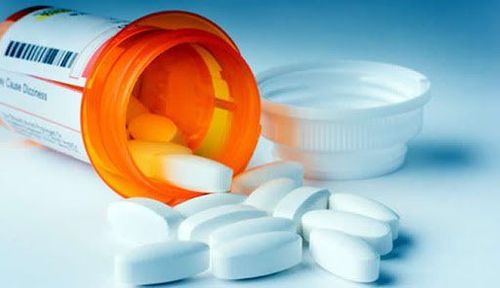
Uống thuốc trầm cảm thường kéo dài ít nhất 1 năm
3. Antidepressants and side effects
Currently, antidepressants include 5 types that inhibit most neurotransmitters such as serotonin, norepinephrine and dopamine. Each drug has different side effects, and about 50% of people experience these effects, especially during the first few weeks of treatment.3.1. Selective serotonin reuptake inhibitors (SSRI class) & serotonin and norepinephrine reuptake inhibitors (SNRI class)
SSRIs are the most commonly used antidepressants with the advantages of good tolerability and efficacy. Newer generations have serotonin and norepinephrine reuptake inhibitors (SNRIs) with similar efficacy to SSRIs. These are two drugs that often appear in depression prescriptions.Possible side effects with these 2 groups of drugs include:
Nausea, vomiting; Causing insomnia, difficulty sleeping; Diarrhea; agitation, restlessness; Rash; Sexual dysfunction.
3.2. Norepinephrine and dopamine reuptake inhibitors
This is a class of antidepressants that do not cause sexual problems. Common side effects of this class of drugs include:Agitation; Headache; Decreased appetite; Insomnia. SEE ALSO: Tricyclic antidepressants and tricyclic antidepressants

Mất ngủ là triệu chứng thường gặp khi uống thuốc ức chế tái hấp thu Norepinephrine và dopamine
3.3. Tricyclic antidepressants
Tricyclic antidepressants are an old class of drugs that rarely appear in depression prescriptions because of their serious side effects. In particular, patients with cardiovascular disease such as congestive heart failure and arrhythmia should not use this class of drugs. In general, tricyclic antidepressants are used only when new generation drugs are not effective. Possible side effects include:Dry mouth; Constipation; Weight change; Bladder problems; Sexual disorders; Reduced vision; Sleepy.
3.4. Monoamine oxidase (MAO) inhibitors
MAO inhibitors are part of the older class of antidepressants and are indicated when a patient has not responded to other medications for depression. This class of drugs can be effective in patients who are depressed and have symptoms such as excessive sleep, weakness, or excessive anxiety. Possible side effects include:Constipation; Sleepy; Weight gain; Headache; Abdominal discomforts; Dizzy; tremors, muscle contractions, or unusual muscle movements; Sexual disorder.
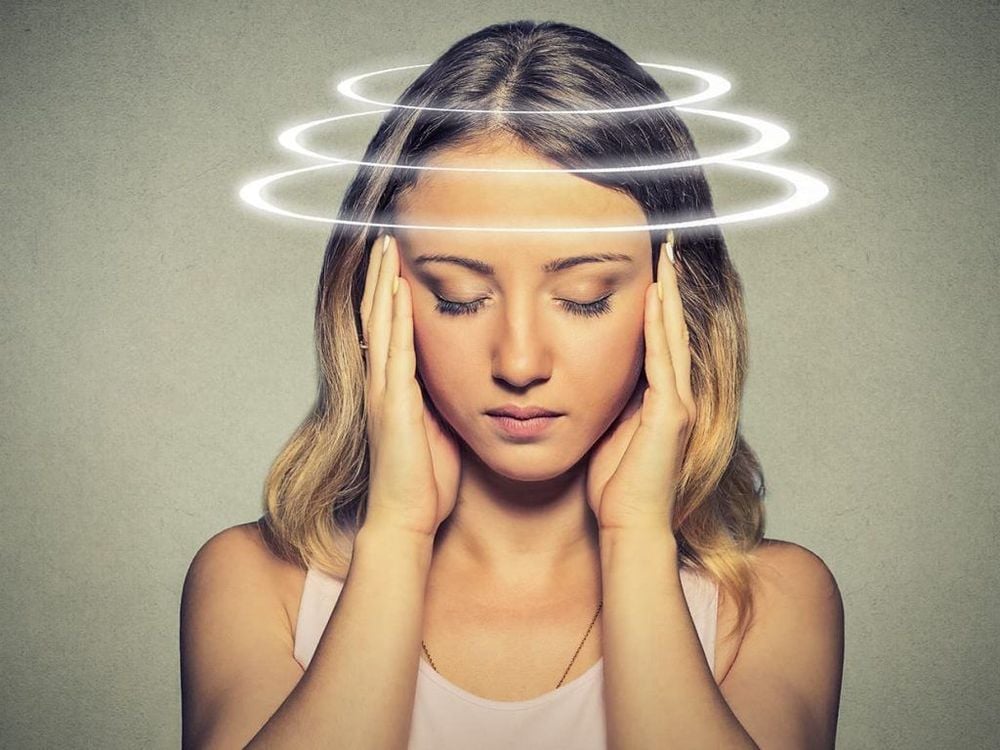
Thuốc ức chế men monoamine oxidase thường gây chóng mặt cho người bệnh
4. Measures to limit the side effects of antidepressants
Patients who are prescribed antidepressant treatment need to follow the doctor's treatment, monitor the side effects and the effectiveness of the drug. If any undesirable effects occur, the patient should consult a doctor and do not stop taking the drug on their own. Some measures to help reduce the risk of side effects:Reduce the dose of the drug; Use with another medication to help treat side effects; Switch to another drug; The patient's family should take measures to prevent the risk of suicide when starting to use antidepressants: Antidepressants do not make patients want to commit suicide, but when patients take the drug, they tend to easier to make decisions even though the depression has not improved. This leads to suicidal thoughts as soon as they arise that are easily decided. Therefore, if the patient has suicidal thoughts, the family member should discuss with the doctor to have preventive measures; Make the most of depression medication: Patients need to use the drug fully, not voluntarily quit treatment even when the symptoms have improved; Some advice for patients newly prescribed antidepressants:
Antidepressants take time to work: According to medical experts, antidepressants can It takes weeks to months before it takes effect. Patients will not feel immediately at ease when they first start taking an antidepressant; Taking antidepressants exactly as prescribed, taking less of them or skipping doses will decrease their effectiveness. If the patient experiences bothersome side effects, talk to the treating doctor immediately; Do not arbitrarily use antidepressants: These drugs are only used when prescribed and monitored by a doctor, some types cause a lot of discomfort when quitting; Don't give up if one medication doesn't help with depression: If your current antidepressant isn't working, your doctor may prescribe another medication. Some studies show that people with depression who don't respond to the first drug have a better chance of recovery if they try a second or add a new one to their treatment; Continue taking an antidepressant even if the person with depression starts to feel better. Are antidepressants addictive? The nature of antidepressants is not addictive, however, depression is an intertwined neurological and psychological problem, it is completely dependent on the patient and feeling that it is impossible to return to normal without the drug. can happen. Therefore, treatment always needs psychological support and encouragement from family members.

Hạn chế tác dụng phụ của thuốc trầm cảm sẽ giúp người bệnh ngăn ngừa được nhiều rủi ro
5. Consequences of stopping antidepressants too soon
The course of treatment for depression includes an attack phase and a maintenance phase:The attack phase usually lasts from 6-12 weeks; The maintenance phase lasts from 16-20 weeks when the symptoms of depression have completely disappeared; The minimum duration for a minimum course of treatment is about 6 months to 1 year. However, patients with depression who are chronically depressed or have gone through multiple episodes of treatment may need to take medication for longer, possibly for years, or even for life. For these subjects, depression is considered as a chronic disease similar to hypertension, diabetes...
The effective time for the drug to help patients feel better is about 15 days. After starting the medication and after about 2 months the patient will feel completely normal again. However, stopping the drug now is a mistake, leading to treatment failure and depression relapse. According to many studies, if the patient stops taking the drug, does not complete the course (at least 6 months), the recurrence rate will be 25% in the first 2 months and if the patient returns to the maintenance treatment course. Within 2 years, the relapse rate will be lower than in patients who quit early.
Reasons why patients with depression need long-term medication:
Conventional drugs will be discontinued when symptoms disappear to avoid unwanted side effects. However, for depression, even though the symptoms of the disease have disappeared, the cause of the disease has not been completely resolved, just stopping the drug will quickly recur. Depression occurs due to persistent and difficult to regulate levels of neurotransmitters in the brain (such as serotonin, norepinephrine...); Stopping the drug too soon can make depression more likely to come back. A course of treatment lasts a minimum of 6 months after the disease symptoms disappear. That time is needed for the biochemical factors in the brain to return to normal and the person is less likely to have a relapse. If the drug is stopped too soon, the possibility of recovery will be reduced, the treatment time will be longer and more expensive; The most common reason why people want to quit smoking midway is the side effects of the drug. To overcome these side effects, patients should use the drug when full, drink with plenty of water, drink before going to bed, do not operate the vehicle right after taking the drug. Each person should try to have a balanced, happy and harmonious life, eat nutritious food, eat lots of green vegetables and fresh fruits, exercise daily... Combined with proper medication indicated, the disease is quickly reversed.
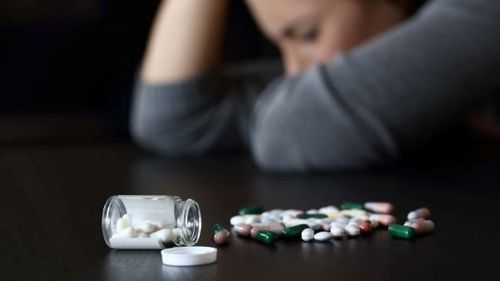
Người bệnh bị tái phát trở lại cần uống thuốc trầm cảm lâu dài
In short, patients must not stop taking the drug when their mood improves, but must strictly follow the doctor's instructions on the time to take the medicine. Most antidepressants need to be continued for 6 months to 1 year after the patient has reduced or no longer feels depressed. Stopping the medication too soon or before the prescribed time can cause depression to return.
Like all drugs, antidepressants have potential advantages and disadvantages. Therefore, in order to achieve the highest effectiveness of treatment as well as avoid side effects, patients need to follow the doctor's instructions. In case the use of the drug does not bring good results, the patient should stop using it and go to a reputable medical facility for examination and treatment.
Currently, the Psychology Department at Vinmec International General Hospital has the role of professional diagnosis and treatment of human psychological problems, including depression. The specialty has a team of well-trained, experienced and qualified psychologists, physical systems, and modern equipment: 6 ultrasound rooms, 4 DR X-ray rooms (1 x-ray machine). full-axis, 1 intensifier, 1 compositor and 1 mammogram), 2 DR mobile x-ray machines, 2 multi-receiver computer tomography rooms (1 128 rows and 1 16 array) , 2 rooms for magnetic resonance imaging (1 machine 3 Tesla and 1 machine 1.5 Tesla), 1 room for interventional angiography 2 planes and 1 room to measure bone mineral density....Especially, with designed space According to 5-star hotel standards, Vinmec guarantees to bring patients the most comfort, friendliness and peace of mind.
Please dial HOTLINE for more information or register for an appointment HERE. Download MyVinmec app to make appointments faster and to manage your bookings easily.
Reference source: webmd.com




